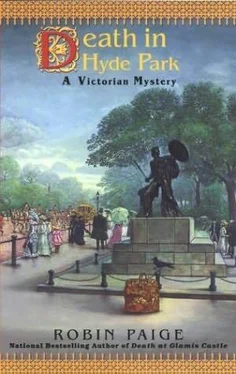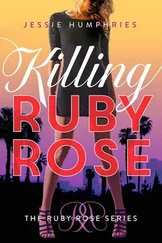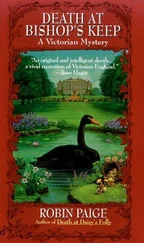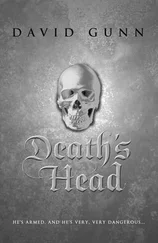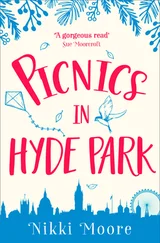Robin Paige - Death in Hyde Park
Здесь есть возможность читать онлайн «Robin Paige - Death in Hyde Park» весь текст электронной книги совершенно бесплатно (целиком полную версию без сокращений). В некоторых случаях можно слушать аудио, скачать через торрент в формате fb2 и присутствует краткое содержание. Жанр: Классический детектив, на английском языке. Описание произведения, (предисловие) а так же отзывы посетителей доступны на портале библиотеки ЛибКат.
- Название:Death in Hyde Park
- Автор:
- Жанр:
- Год:неизвестен
- ISBN:нет данных
- Рейтинг книги:5 / 5. Голосов: 1
-
Избранное:Добавить в избранное
- Отзывы:
-
Ваша оценка:
- 100
- 1
- 2
- 3
- 4
- 5
Death in Hyde Park: краткое содержание, описание и аннотация
Предлагаем к чтению аннотацию, описание, краткое содержание или предисловие (зависит от того, что написал сам автор книги «Death in Hyde Park»). Если вы не нашли необходимую информацию о книге — напишите в комментариях, мы постараемся отыскать её.
Death in Hyde Park — читать онлайн бесплатно полную книгу (весь текст) целиком
Ниже представлен текст книги, разбитый по страницам. Система сохранения места последней прочитанной страницы, позволяет с удобством читать онлайн бесплатно книгу «Death in Hyde Park», без необходимости каждый раз заново искать на чём Вы остановились. Поставьте закладку, и сможете в любой момент перейти на страницу, на которой закончили чтение.
Интервал:
Закладка:
Bradford slipped his arm around Edith’s waist and nuzzled her neck as the King’s coach came into view. For him, the Coronation was a celebration of all that was right with the world, and a promise of even better things to come.
Within Westminster Abbey, the spectacle was much more intimate and immediate, many of the spectators themselves a part of the pageant. In the transept, Kate Sheridan fidgeted on her hard wooden chair. Her coronation robe, last worn by a previous Baroness Somersworth at the crowning of Queen Victoria in 1838, was trimmed in two inches of miniver and two bars of ermine, with a yard-long train that she had found almost impossible to manage gracefully. Like the robes of the ladies around her, it smelt faintly of the camphor-chest, in spite of being aired. The bevy of duchesses, marchionesses, countesses, viscountessess, and baronesses were seated in strict order of precedence, their ranks signified by the quantity of miniver and ermine on their robes, the length of their trains, and the style of the coronets they would don upon the crowning of the Queen. They all, however, wore identical white elbow-length gloves. Later, when the King was asked what had impressed him most about the ceremony, he would answer with a glint in his eye that the simultaneous lifting of those graceful white arms as the ladies put on their coronets had reminded him of a scene from a beautiful ballet.
Kate, feeling very much an imposter among this exalted assembly, wished fervently that she could have been seated with her husband Charles. But Lord Sheridan, Baron Somersworth, sat among the other peers in the transept on the opposite side of the throne, where she could not even catch a glimpse of him. She suspected, though, that he was every bit as uncomfortable as she. Charles had attended the ceremony not because he wanted to, but solely out of a sense of duty and as a testimony to his respect for the King who had finally come into his own.
Left to her own devices, Kate found herself surveying her imposing surroundings with something like an awed disbelief, astonished that an American woman who had grown up among the Irish of New York’s Lower East Side had managed to find her way to the Coronation of King Edward VII of England. Other American women were there, of course: Consuelo Vanderbilt, now the Duchess of Marlborough, had a featured role as bearer of the Queen’s canopy; Mary Leiter Curzon, a baroness and wife of the Viceroy of India, occupied a place of honor; and Jennie Jerome Churchill was elsewhere in the audience. But Consuelo and Mary had brought their British husbands a great deal of money, while Kate was dowered only with intelligence, determination, and a certain beauty (or so Charles asserted), and she had never forgot the poverty of her early life. Like Jack London, Kate Sheridan saw the Coronation through the spectacles of her American experience, and although she would not have described it as a Yankee circus, nothing about it seemed real, especially her part in it.
Then the trumpets sounded a fanfare, the organ pealed majestically, and the Royal procession entered through the West Door and began to make its way down the long aisle, past rows of invited guests-mostly members of the five hundred hereditary families who owned one-fifth of England-who were seated on tiers specially built for the occasion. The audience included those in what some irreverently called the “King’s Loose Box,” arranged by His Majesty to accommodate some of his former and current lovers: Sarah Bernhardt, Mrs. Hartmann, Lady Kilmorey, Mrs. Arthur Paget, and the reigning favorite, Mrs. George Keppel.
As the choir sang an anthem, the officials of the Court came first down the red-carpeted aisle, carrying white wands; the Church dignitaries followed in magnificent miters and vestments, and then the bearers of the Royal regalia: the Sword of State, the Great Spurs, the staff of St. Edward, and St. Edward’s crown. Queen Alexandra was next, her maids of honor carrying her purple velvet train. Finally came the King, solemn, stately, and regal. At the sight of Alexandra and Edward, a collective sigh swept the spectators and Kate felt her throat tighten. She might have become more British than she knew.
The ceremonies had been shortened because of the King’s recent illness. Everybody agreed that Edward bore up handsomely under the strain, although the old Archbishop of Canterbury was wobbly throughout and had to be prompted in his lines. He got the King’s crown on back to front and managed to anoint the Queen’s nose, rather than the Royal forehead, with holy oil. But finally the ceremony was over and the Royal party returned to their coaches. They were cheered enthusiastically by the multitudes of loyal subjects along the route back to Buckingham Palace, where the Royal chef had managed to keep in cold storage some of the quail and mutton that had been destined for the earlier celebration, and there was enough champagne and fine wines, as one guest put it, to float an entire fleet of the Empire’s battleships.
Kate and Charles, however, did not attend this gala banquet. Shedding their heavy robes and uncomfortable coronets, they climbed into Charles’s Panhard and motored down to their home in Essex, where Kate put on a cotton smock and a pair of corduroy trousers and went straight out to dig in her garden.
Not everyone witnessed the parade or the ceremonies, of course. Many sensible people (among them Socialists, Democrats, and Laborites) rejected the revels, taking advantage of the holiday to escape to the countryside for a breath of fresher air. A multitude of others, less privileged, remained at their posts, performing their usual duties-cooking and cleaning, sweeping streets, carting coal, manning fire brigades, unloading ships in the docks along the Thames-scarcely mindful of the glories being paraded through their city. And there were those, particularly among the homeless who had flooded into the City desperate for work, who were too drained by lack of food and sleep to care about the festivities, however grand. As Jack London observed when he wrote about the scene in People of the Abyss, almost the whole of the East End stayed in the East End and got colossally drunk, the public houses awash in ale and thunderous waves of song:
Oh, on Coronation Day, on Coronation Day,
We’ll have a spree, a jubilee, and shout Hip, hip, hooray.
For we’ll all be merry, drinking whiskey, wine, and sherry,
We’ll all be merrily drunk on Coronation Day.
Walking through Green Park, London came across an old man on a bench and asked him how he had liked the procession.
“’Ow did I like it?” the old man replied scornfully. “A bloody good chawnce, sez I to myself, for a sleep, wi’ all the coppers aw’y, so I turned into the corner there, along wi’ fifty others. But I couldn’t sleep, a-lyin’ there ’ungry an’ thinkin’ ’ow I’d worked all the years o’ my life an’ now ’ad no plyce to rest my ’ead; an’ the music comin’ to me, an’ the cheers an’ cannon, till I got almost a hanarchist an’ wanted to blow out the brains o’ the Lord Chamberlain.”
There were others who planned to attend the pageant and were, for various reasons, prevented. Perhaps the most notable of these was a certain Yuri Messenko, a tall, well-built young man, slightly stooped, with a fair complexion, a blond beard and moustache, and fervent eyes. Wearing an old black woolen overcoat with a frayed velvet collar and carrying a satchel, he was striding swiftly through Hyde Park in the direction of Hyde Park Corner, beyond which lay Buckingham Palace, where crowds awaited the return of their newly-crowned King.
Hyde Park occupies 615 acres taken by Henry VIII from Westminster Abbey, to use as his hunting grounds. It was opened to the public in the seventeenth century, and it quickly became a popular site for horse-racing, duels, games, and fairs. By the mid-nineteenth century, it was also the site of gatherings of dissenters of various stripes, with as many as 150,000 people thronging the Park to protest such things as the Sunday Trading Bill, the high price of food, and the violation of the people’s rights, and to demand the right of access to the Park itself. After the riots there in the summer of 1866, Parliament began to debate the issue of free speech, and in 1872 set aside a space in the northeastern corner of the Park for the open expression of dissent. By now, the area around Speakers’ Corner was hallowed ground to Yuri Messenko and his comrades, and fiery orators cried their views on every subject, free of interference by the authorities, although they might be, and often were, hissed and booed by their audiences.
Читать дальшеИнтервал:
Закладка:
Похожие книги на «Death in Hyde Park»
Представляем Вашему вниманию похожие книги на «Death in Hyde Park» списком для выбора. Мы отобрали схожую по названию и смыслу литературу в надежде предоставить читателям больше вариантов отыскать новые, интересные, ещё непрочитанные произведения.
Обсуждение, отзывы о книге «Death in Hyde Park» и просто собственные мнения читателей. Оставьте ваши комментарии, напишите, что Вы думаете о произведении, его смысле или главных героях. Укажите что конкретно понравилось, а что нет, и почему Вы так считаете.
